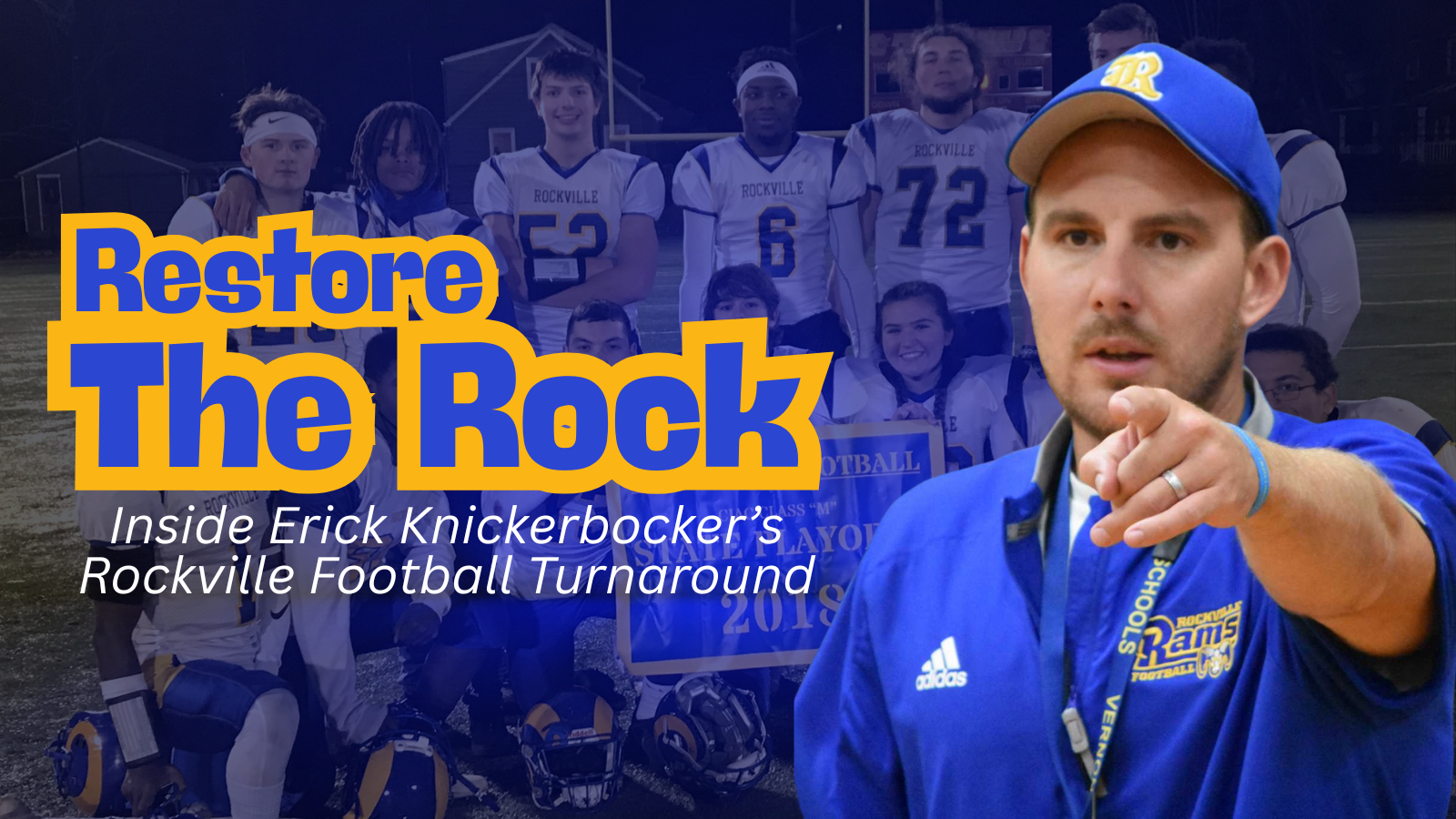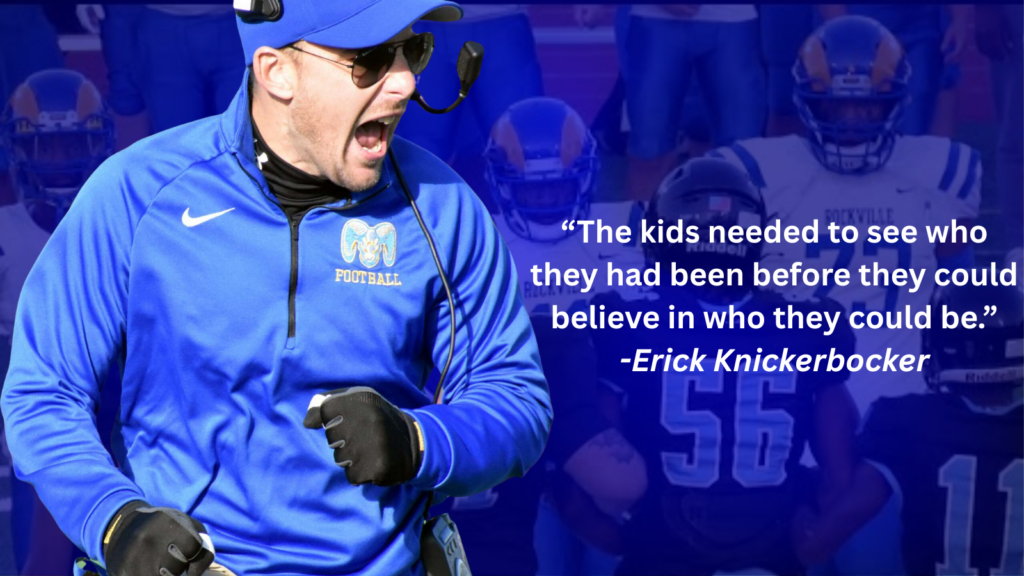
In 2018, Erick Knickerbocker took over a football program most coaches wouldn’t touch with a ten-foot pole.
Rockville High School, nestled in the blue-collar town of Vernon, Connecticut, had gone 27-107 since 2004. The team was coming off a 1-10 season. The student body mocked players in the hallway for wearing their jerseys. There was no pride left—just pain.
But Knickerbocker saw something different.
He saw potential. And more importantly, he saw a mission.
“The kids were like, ‘Coach, we’ve always been bad… we get made fun of for playing football.’ But I had been digging through old archives. I found out Rockville used to be really good. We had just forgotten.”
That forgotten legacy became the foundation. As Knickerbocker sat with his players that first spring, he challenged them not to build something new, but to restore what once was. Out of that meeting came the vision that would define the Rockville football turnaround:
Restore the Rock.
Rebuilding Culture, Not Just a Team
Knickerbocker didn’t start with a scheme. He started with identity.
He unearthed decades of Rockville football history, brought in former coaches and alums, and restored lost trophies and banners. The locker room became a museum of what the program once was and a blueprint for its future.
“The kids needed to see who they had been before they could believe in who they could be.”
The message clicked. Rockville won seven games in year one. The following season, they went undefeated in the regular season and made a deep playoff run. The Rockville football turnaround was no longer a vision—it was real.
But it wasn’t the wins that mattered most. It was the culture that came first.

The Town That Waited
The town of Vernon had been waiting for this. For decades, football had been a source of pride. Generations of tough, hardworking families rallied behind the Rams.
Knickerbocker brought that back. The bell tradition returned. Fans packed the stands. Alumni, even those from struggling years, came back to support the team.
“At the high school level, it’s not just the people in the room. If you want to make serious change, you’ve got to get the whole town on board.”
And they did.
After the Turnaround: Sustaining Success
Success brought its own challenges. Players began expecting wins, and the hunger that fueled the early years started to fade.
Knickerbocker refocused the program on the process, not the outcome. They retired the “Restore the Rock” slogan—mission accomplished—and moved toward a new identity. One potential replacement? Raise the Rock.
“They forgot about the climb. Honestly, I did too.”
Through leadership councils, off-field bonding, and a relentless commitment to team history, Rockville didn’t just win games. They built something lasting.
Lessons from the Rockville Football Turnaround
Knickerbocker’s story offers more than inspiration. It gives a roadmap for coaches looking to rebuild:
- Start with identity and history—make it real.
- Build belief before focusing on wins.
- Lean on mentors, alumni, and community.
- Develop leadership through ownership and process.
- Create off-field experiences that build connection.
“They don’t want crazy stuff. They just want to spend time with you that has nothing to do with football.”
That’s how Rockville football came back—not just through coaching, but through care.
The Rockville football turnaround proves that when you restore pride, purpose, and identity, the wins often follow.
Resources for your Turnaround:
The Turnaround Series is presented by CoachTube – your resource for the philosophy, methods, schemes, and strategies you need for your football program turnaround.


